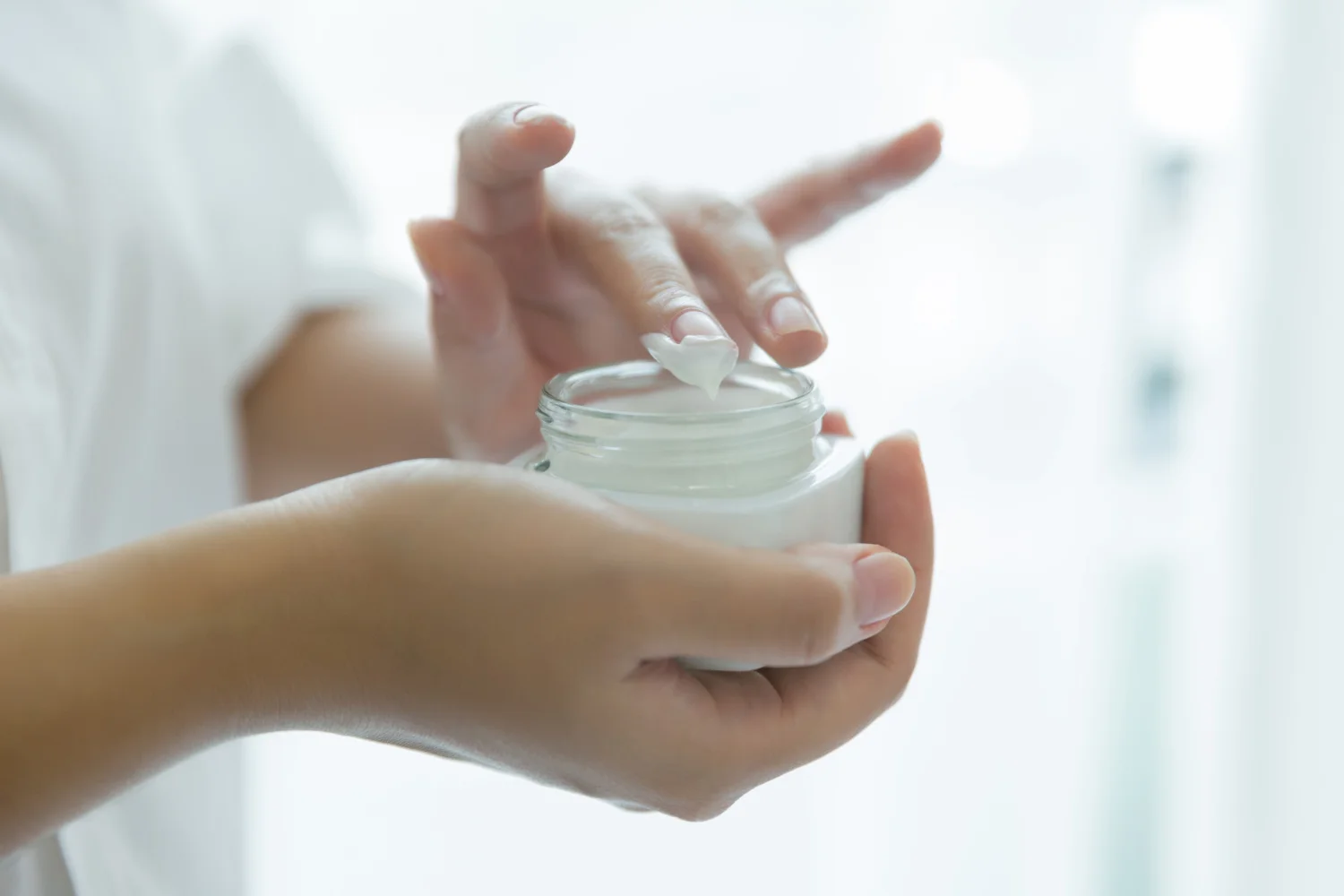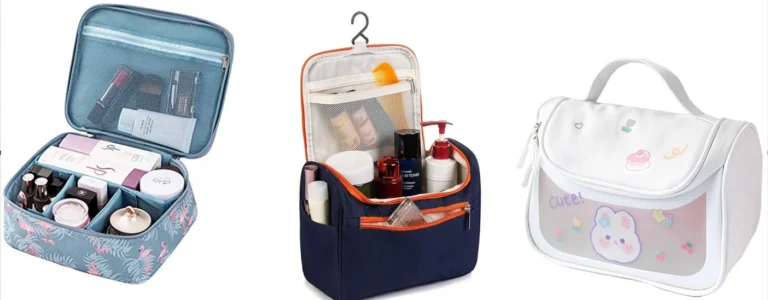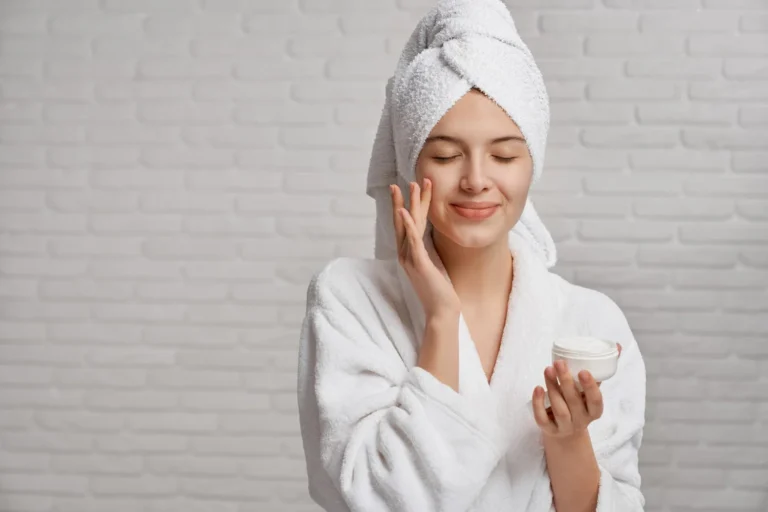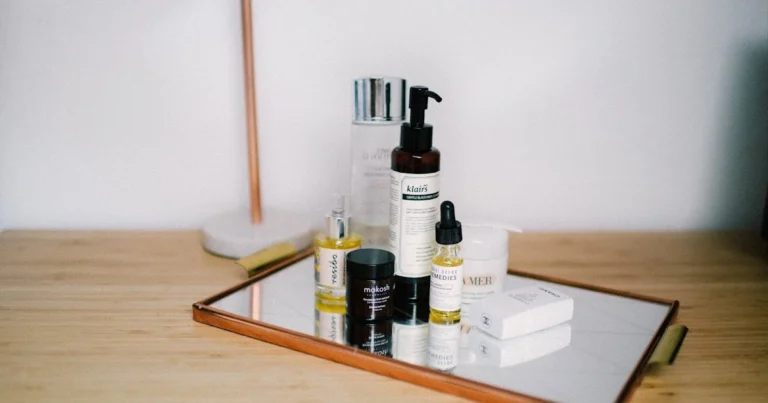Demystifying Occlusives in Skincare: Your Complete Guide
Have you ever wondered how to achieve that dewy, radiant skin? The secret might just lie in occlusives! These unassuming skincare ingredients play a crucial role in maintaining skin health and hydration. But what exactly are they, and how can you incorporate them into your routine? Let’s dive into the world of occlusives and uncover their magic.
What are Occlusives?
Occlusives are like the skin’s protectors! They’re special ingredients in skincare products that create a protective barrier on your skin’s surface. This barrier acts as a shield, locking in moisture and preventing water from escaping. It’s like building a fortress around your skin to keep it hydrated and soft all day.
For example, when you use a moisturizer with occlusives like petrolatum or coconut oil, they form a barrier that traps moisture inside your skin, preventing it from evaporating. This not only keeps your skin feeling hydrated but also makes it look healthier and smoother. So, if you want to keep your skin happy and glowing, make sure to include products with occlusives in your skincare routine!
How Do Occlusives Work?
Occlusives act like a shield for your skin. Your skin is similar to a sponge—it soaks up moisture from around you and from the products you put on it. But just like a sponge can dry out, your skin can lose moisture too. When you use an occlusive product, it forms a thin layer on your skin’s surface. This layer locks in moisture, stopping it from escaping into the air. Not only does this keep your skin hydrated, but it also helps other skincare products work better by letting them sink deeper into your skin. So, think of occlusives as your skin’s moisture-locking superheroes, making sure it stays happy and healthy.
What Benefits Do Occlusives Offer?
Now that you understand how occlusives work, let’s explore the myriad benefits they offer for your skin:
1. Eczema
If you’re battling eczema, occlusives can be a true lifesaver. Eczema often leaves your skin feeling dry, itchy, and irritated. That’s where occlusives step in to save the day! They create a protective barrier on your skin, locking in moisture and providing relief from dryness and itching. With occlusives, you can say goodbye to the discomfort of eczema and hello to skin that feels more comfortable and hydrated.
2. Psoriasis
Dealing with psoriasis can be a real challenge, with dry, scaly patches that can be painful and unsightly. But don’t worry; occlusives are here to help! By forming a barrier on your skin, occlusives trap moisture and prevent it from escaping. This helps to soften those rough patches and reduce the appearance of psoriasis plaques. While they won’t make psoriasis vanish completely, occlusives can definitely make a noticeable improvement in the look and feel of your skin.
3. Atopic Dermatitis
Atopic dermatitis, or eczema, can be a persistent problem, causing intense itching, redness, and dry skin due to a compromised skin barrier. Regular use of occlusives can be a game-changer here! They provide much-needed moisture and help to maintain a protective barrier on the skin, reducing the need for topical corticosteroids. Whether you’re dealing with atopic dermatitis, burns from radiation treatments, diaper rash, or other skin irritations, occlusives can offer relief and promote healing.
4. Boosted Product Power
When you combine occlusives with other skincare products, they work together like a dream team for your skin. Occlusives act as a goalie, keeping moisture from escaping too fast. This helps all the other skincare ingredients do their jobs better. So, when you use skincare products with occlusives, you’re getting the most out of your investment.
5. Versatility
Occlusives are like the chameleons of skincare—they come in all shapes and sizes. You can find them in creams, ointments, and balms, catering to every skin type and concern out there. Whether you’re battling dry patches, dealing with eczema, or just want to give your skin an extra hydration boost, there’s an occlusive product waiting to be your skin’s new best friend.
Besides treating specific skin issues, occlusives can also help with dryness caused by everyday factors like hot water, harsh weather, or drying skincare products. So, whether your skin needs more hydration or relief from irritation, occlusives are an easy and effective way to keep your skin healthy and happy.
What’s the Difference Between Humectants, Emollients, and Occlusives?
Understanding the differences between humectants, emollients, and occlusives can feel overwhelming, but let’s break it down into simple terms.
Humectants
- Definition: Humectants are like magnets for moisture. They contain water-attracting groups such as hydroxyl (OH) and amine (NH2), which draw water into your skin, helping to keep it hydrated and plump.
- How They Work: Humectants pull water from deeper layers of the skin to the outermost layer (epidermis) and stratum corneum. They can also draw moisture from the air if humidity levels are above 50%.
Examples:
- Hyaluronic acid
- Urea
- Alpha-hydroxy acids (AHAs)
- Amino acids
- Peptides
- Sugar alcohols (glycerin, sorbitol, and xylitol)
- Aloe vera
- Honey
Best for: Normal to slightly dry skin types.
Emollients
- Definition: Emollients are like a gentle hug for your skin. They create a protective barrier that soothes and softens, preventing moisture from escaping. This helps to keep your skin feeling smooth and hydrated.
- How They Work: Emollients work by sealing in hydration and preventing water loss. They’re your go-to for maintaining that supple, smooth feel.
Examples:
- Shea butter
- Beeswax
- Cocoa butter
- Lanolin
- Olive oil
- Argan oil
- Jojoba oil
Best for: Suitable for all skin types, especially beneficial for those needing extra moisture.
Occlusives
- Definition: Occlusives are skincare ingredients renowned for their ability to act as moisture guardians. They create a protective barrier on the skin’s surface, effectively trapping water molecules and preventing them from evaporating into the atmosphere.
- How They Work: Occlusives act as a protective shield, keeping your skin’s hydration intact. Without them, moisture would vanish into thin air.
Examples:
- Petroleum jelly (good ol’ Vaseline)
- Mineral oil
- Silicones (dimethicone, cyclopentasiloxane)
Best for: Ideal for dry, dehydrated skin and providing protection in cold weather.
How Many Types of Occlusives Are There?
Certainly! Let’s explore the various types of occlusive agents commonly found in skincare.
1. Petroleum Jelly (Vaseline)
- Description: Petroleum jelly, commonly known as Vaseline, is a thick, translucent jelly-like substance derived from petroleum.
- Properties: It acts as a highly effective occlusive agent, forming a protective barrier on the skin’s surface to lock in moisture and prevent water loss.
- Benefits: Petroleum jelly is renowned for its ability to hydrate and soothe dry, chapped skin, making it an excellent remedy for conditions like eczema, psoriasis, and minor burns.
- Usage: It can be applied directly to the skin as a moisturizer or used as a protective barrier to prevent chafing and irritation. Petroleum jelly is also found in various skincare products, such as lip balms, ointments, and moisturizers.
- Considerations: While petroleum jelly is generally safe for external use, some people may experience allergic reactions or skin irritation. It’s a good idea to do a small patch test before using it widely, especially if you have sensitive skin. Also, avoid eating petroleum jelly and consult a doctor before using it on cuts or scrapes.
2. Mineral Oil
- Description: Mineral oil is a lightweight, odorless oil derived from petroleum.
- Properties: It has excellent occlusive properties, forming a barrier on the skin to trap moisture and prevent dehydration.
- Benefits: Mineral oil is non-comedogenic and suitable for all skin types, making it an ideal choice for hydrating and softening the skin.
- Usage: It is commonly found in moisturizers, baby oils, and makeup removers due to its gentle and soothing nature.
- Considerations: While mineral oil is generally safe for most skin types, it may cause clogged pores or irritation in some individuals, particularly those with sensitive or acne-prone skin. It’s advisable to perform a patch test before using it extensively, especially if you have known skin sensitivities. Additionally, mineral oil should not be ingested and should be kept away from the eyes to avoid irritation.
3. Plant Oils
- Description: Plant oils, such as jojoba oil, coconut oil, and argan oil, are natural extracts derived from various plant sources.
- Properties: Rich in fatty acids and antioxidants, plant oils provide nourishment and hydration to the skin while forming a protective barrier to prevent moisture loss.
- Benefits: They are suitable for all skin types and offer additional skincare benefits, such as anti-inflammatory and anti-aging properties.
- Usage: You can use plant oils in lots of different ways. Some people like to use them on their own as moisturizers, while others prefer to mix them into their favorite creams or serums for an extra boost of hydration.
- Considerations: Plant oils are usually safe for most skin types, but they can sometimes cause breakouts or irritation, especially if you have sensitive skin. It’s a good idea to do a patch test first and start with a small amount to see how your skin reacts. And remember, a little goes a long way with these potent oils!
4. Shea Butter
- Description: Shea butter is a creamy substance extracted from the nuts of the shea tree, which is native to Africa. It’s been used for centuries for its moisturizing and healing properties.
- Properties: It has emollient and occlusive properties, melting into the skin to form a protective barrier that locks in moisture and promotes healing.
- Benefits: Shea butter is highly moisturizing and suitable for dry, sensitive skin, making it an effective treatment for conditions like eczema, psoriasis, and dermatitis.
- Usage: Shea butter is commonly found in moisturizers, body creams, lip balms, and hair care products for its hydrating and nourishing properties.
- Considerations: Shea butter is generally safe for most people, but it can sometimes cause breakouts or irritation, especially if you have sensitive skin. It’s a good idea to do a patch test first and start with a small amount to see how your skin reacts. And remember, a little goes a long way with this rich and luxurious butter!
5. Beeswax
- Description: Beeswax is a natural substance produced by honeybees in their hives. It’s a waxy substance that’s often used in skincare products for its moisturizing and protective properties.
- Properties: It has occlusive properties, forming a protective barrier on the skin’s surface to retain moisture and protect against environmental stressors.
- Benefits: Beeswax is rich in vitamin A, which helps promote skin cell regeneration and repair. It also has anti-inflammatory and antibacterial properties, making it beneficial for soothing and healing dry, irritated skin.
- Usage: Beeswax is commonly used in skincare products such as lip balms, creams, and salves, where it provides a protective layer to lock in moisture and prevent moisture loss.
- Considerations: Beeswax is generally safe for most people, but some folks might find they’re allergic to it. If you have sensitive skin or a history of allergies, it’s a good idea to do a patch test first and start with a small amount to see how your skin reacts. And remember, beeswax is a natural ingredient, so it’s always best to choose products that are made with high-quality, pure beeswax.
6. Squalane
- Description: Squalane is a naturally occurring lipid produced by the body and found in high concentrations in human sebum. However, the squalane used in skincare products is often derived from plant sources such as olives or sugarcane.
- Properties: Squalane is a light, non-comedogenic oil that closely mimics the natural oils found in your skin. It has excellent emollient properties and is easily absorbed into the skin without leaving a greasy residue. While not as occlusive as some other ingredients, squalane helps to reinforce the skin’s natural barrier and prevent moisture loss.
- Benefits: Using products with squalane can do wonders for your skin. It helps moisturize dry skin, reduces the appearance of fine lines and wrinkles, and even has antioxidant properties to protect against environmental damage.
- Usage: Squalane can be used in a variety of skincare products, including moisturizers, serums, and facial oils. It can be applied directly to the skin as a standalone treatment or mixed with other ingredients to enhance its benefits. Squalane is versatile and can be incorporated into both morning and evening skincare routines. It can also be used as a spot treatment for dry patches or areas of irritation. Overall, squalane is a versatile and effective ingredient that helps to hydrate, nourish, and protect the skin, leaving it looking and feeling healthy and radiant.
- Considerations: Squalane is generally safe for most people, but if you have sensitive skin or a history of allergies, it’s always a good idea to do a patch test first. And remember, a little goes a long way with squalane—you only need a small amount to reap its moisturizing benefits!
7. Cocoa Butter
- Description: Cocoa butter is a natural fat extracted from cocoa beans, the same beans used to make chocolate. It has a rich, creamy texture and a subtle chocolate scent.
- Properties: Cocoa butter is solid at room temperature but melts on contact with the skin, making it easy to apply. It’s deeply moisturizing and has a luxurious feel, leaving the skin soft and supple.
- Benefits: Using cocoa butter can help hydrate and nourish the skin, making it particularly beneficial for dry and sensitive skin types. It’s also known for its ability to improve skin elasticity and reduce the appearance of scars and stretch marks.
- Usage: Cocoa butter is commonly found in moisturizers, body lotions, and lip balms, where it provides long-lasting hydration and helps improve skin elasticity and tone.
- Considerations: While cocoa butter is generally safe for most people, those with allergies to cocoa or sensitive skin should do a patch test before using it extensively. Additionally, since cocoa butter is solid at room temperature, it may take a little longer to absorb compared to lighter oils.
8. Lanolin
- Description: Lanolin is a natural substance derived from the oil glands of sheep. It’s a thick, waxy substance that’s similar to the oils found in human skin.
- Properties: Lanolin is highly emollient and moisturizing, making it great for soothing and softening dry, rough skin. It forms a protective barrier on the skin’s surface, helping to lock in moisture and prevent dehydration.
- Benefits: Lanolin is highly emollient and hydrating, making it effective in softening and soothing dry, rough skin. It also has anti-inflammatory properties, which can help alleviate itching and irritation.
- Usage: Lanolin is commonly used in skincare products such as moisturizers, nipple creams for breastfeeding mothers, and lip balms, where it provides intense hydration and protection against environmental aggressors.
- Considerations: While lanolin is generally safe for most people, some individuals may be allergic to it. If you have a known allergy to wool or lanolin, it’s best to avoid products containing this ingredient. Additionally, lanolin has a thick texture that may feel greasy on the skin, so it’s best to use it sparingly.
9. Olive Oil
- Description: Olive oil is a natural oil extracted from the fruit of the olive tree.
- Properties: Olive oil is rich in antioxidants and fatty acids, making it deeply nourishing and moisturizing for the skin. It has a lightweight texture that’s easily absorbed, leaving the skin feeling soft and smooth.
- Benefits: Using olive oil in skincare can help hydrate and replenish the skin’s moisture barrier, making it ideal for dry and sensitive skin types. It’s also known for its anti-inflammatory properties, which can help soothe irritation and redness.
- Usage: Olive oil can be used on its own as a moisturizer or mixed with other ingredients to create homemade skincare remedies. It’s commonly found in moisturizers, serums, and cleansers, and can also be used as a natural makeup remover.
- Considerations: While olive oil is generally safe for most people, it’s important to choose high-quality, extra-virgin olive oil for skincare purposes. Some individuals may be allergic to olive oil, so it’s a good idea to do a patch test before using it extensively. Additionally, olive oil has a slightly heavier texture compared to other oils, so it may not be suitable for those with oily or acne-prone skin.
10. Argan Oil
- Description: Argan oil is a natural oil extracted from the kernels of the argan tree, native to Morocco. It’s often referred to as “liquid gold” due to its rich golden color and numerous skincare benefits.
- Properties: Argan oil is lightweight and easily absorbed into the skin, making it suitable for all skin types. It’s rich in fatty acids, antioxidants, and vitamin E, which help nourish and protect the skin.
- Benefits: Argan oil is rich in fatty acids and antioxidants, making it highly nourishing and hydrating for the skin. It helps improve skin elasticity, reduce inflammation, and promote a healthy complexion.
- Usage: Argan oil can be used as a facial moisturizer, body oil, or hair treatment to hydrate and nourish the skin and hair. It is also found in various skincare products, such as serums, creams, and masks.
- Considerations: While argan oil is generally safe for most people, it’s always a good idea to do a patch test before using it extensively, especially if you have sensitive skin or allergies. Additionally, make sure to choose pure, organic argan oil for the best results, as some products may contain added ingredients that could irritate the skin.
11. Jojoba Oil
- Description: Jojoba oil is a natural oil extracted from the seeds of the jojoba plant, native to the southwestern United States and northern Mexico. It’s known for its golden color and mild, nutty aroma.
- Properties: Jojoba oil closely resembles the natural oils produced by the skin, making it easily absorbed and suitable for all skin types. It’s rich in vitamins and minerals, including vitamin E and B-complex vitamins, which help nourish and protect the skin.
- Benefits: Jojoba oil is non-comedogenic and suitable for all skin types, making it an excellent choice for moisturizing and balancing the skin. It helps regulate sebum production, soothe inflammation, and promote skin healing.
- Usage: Jojoba oil can be used as a standalone moisturizer or blended with other oils and ingredients to create custom skincare formulations. It is commonly found in facial oils, serums, and moisturizers, where it provides hydration and nourishment for the skin.
- Considerations: Jojoba oil is generally safe for most people, but it’s always a good idea to do a patch test before using it extensively, especially if you have sensitive skin or allergies. Additionally, make sure to choose pure, cold-pressed jojoba oil for the best results, as some products may contain added ingredients that could irritate the skin.
How to Incorporate Occlusives Into Your Skincare Routine
Sure thing! Now that you’re excited about the perks of using occlusives, you might be wondering how to slot them into your daily skincare routine. Here are some easy-peasy tips to help you out:
Choose the Right Product
Look for skincare products that contain occlusives as one of the main ingredients. This could be a moisturizer, balm, or even a facial oil. Pay attention to the other ingredients in the product to ensure they are compatible with your skin type and concerns.
Layer Strategically
Occlusives work best when applied as the final step in your skincare routine, after any serums or treatments. This allows them to seal in all the beneficial ingredients from your previous steps and create a protective barrier over your skin.
Use Sparingly
A little goes a long way when it comes to occlusives. You only need a small amount to cover your entire face, so resist the urge to slather on thick layers. Too much occlusive can feel heavy and greasy on the skin.
Customize for Your Skin Type
While occlusives can benefit all skin types, the type of occlusive you choose and how you use it may vary depending on your individual needs. If you have oily or acne-prone skin, opt for lighter-weight occlusives like silicones or mineral oil. For dry or sensitive skin, reach for richer formulations containing ingredients like shea butter or beeswax.
Potential Downsides of Occlusives
When you use occlusive skincare stuff, there are a few things you should know that might not be so great.
Some people might think occlusive ingredients are too heavy or oily, which could make your pores feel all clogged up and maybe even cause pimples. Also, certain parts of your body, like your chest or back, might not like occlusives as much because they’ve got bigger pores that can get easily clogged.
If you notice your skin getting red or irritated after using occlusive products, it’s a good idea to stop and talk to a skin doctor. Your skin’s happiness is super important!
Conclusion
Occlusives are incredible ingredients that are essential for maintaining healthy, hydrated skin. They work wonders by forming a protective barrier, sealing in moisture, and shielding your skin from the harsh effects of the environment. This helps to create a smoother, more radiant complexion that you’ll love showing off. No matter if your skin tends to be dry, sensitive, or a mix of both, adding occlusives to your skincare routine can make a world of difference. Don’t hesitate any longer – start using occlusives today and discover the beauty of well-nourished skin.



















